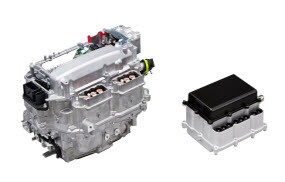
Toyota is taking new steps to increase fuel efficiency within their hybrid lineup, developing a semiconductor chip that will improve efficiency by 10 percent and help reduce the size of automotive power control units by 80 percent. Made from one of the toughest natural materials, silicon carbide, the chips will greatly enhance Toyota's current hybrid powertrains and lead to further advancements in the future.

Since creating the new semiconductors, Toyota has begun testing the chips in select hybrid models. They have already reported a five-percent increase in fuel efficiency within the test cars, and by next year, they plan to start test-driving additional cars with the semiconductors on public roads in Japan. However, don't expect to find yourself in a semiconductor chip-equipped car just yet. The automaker isn't expecting to launch the new technology until 2020, giving them plenty of time to analyze their full capabilities.
Toyota's best-selling hybrid model, the Prius, is likely to benefit most from the semiconductor chips. It's been a leader in the hybrid segment since its arrival on the market and a 10-percent increase in fuel efficiency would only extend its popularity, keeping it in a league of its own.
